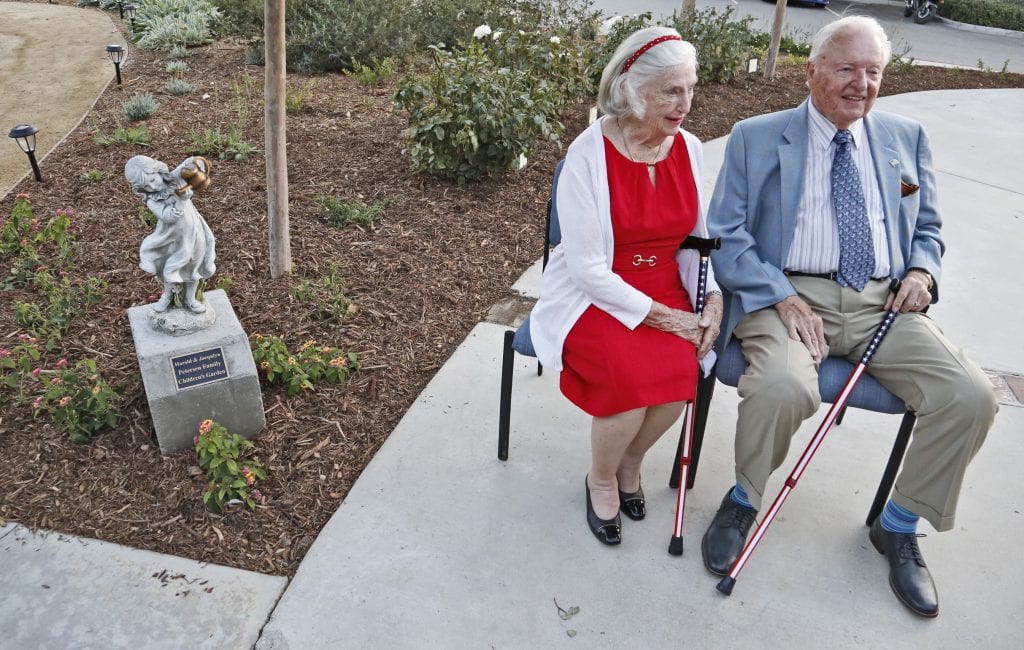The Child & Family Center thanked donors for their generosity at an annual reception on Tuesday evening, highlighting the impact these funds have on the people the center serves.
In addition to recognizing those who are significant donors, Harold and Jacqulyn Petersen had a new children’s garden dedicated in their honor for giving large donations to the Child & Family Center over the past 15 years.
The event honors donors the center refers to as “Guardians of Hope.” The Petersens serve as the honorary chairs for the Guardians of Hope campaign and came up with the name.
“They have been examples for donating generously,” Vice President of Marketing and Community Outreach Cheryl Jones said. “Anyone who knows them knows they’re the best. They are the sweetest people you will ever meet.”
The Harold and Jacqulyn Petersen Family Children’s Garden will serve as a place for conversation and reflection for clients, families and clinicians.

After having the garden dedicated in their honor, the Petersens donated $40,000 to the Child & Family Center, partly from their personal funds and partly on behalf of their insurance company.
Donations made to the Child & Family Center go directly to serving clients’ needs, according to Jones, whether it be proving them with additional therapy sessions or extracurricular activities.
Often, government grants are restricted to what they can provide, so the center uses funds from donors to bridge the gaps.
“Often, children in therapy need something outside the box,” Jones said.
Child & Family Center Clinician Dain Kloner, PsyD, LMFT, has seen these resources at work.
By getting to know clients well, clinicians can better understand their needs both emotionally and practically, according to Kloner.
“The way we utilize the funds is purposeful, it’s deliberate,” Kloner said.
The therapist points to one instance where a boy who lost his father wanted to sign up for a basketball league because the two used to play together.
Because the family could not afford to pay for the boy to join the league, funds from donors covered the cost.
“He reported that he felt like his dad was in the stands,” Kloner said. “It’s not just about buying new toys. It’s about making people feel connected and get back to safety and trust by bringing them back something that was lost.”
Funds meet practical needs and can even go to bedding for low-income families or provide snacks to children during their sessions.
Having funds from donors allows sessions to be more productive and provide clinicians with peace of mind, Kloner said.
“For me, it’s about knowing that you have the resources in your workplace to do what you need to do,” he said.









